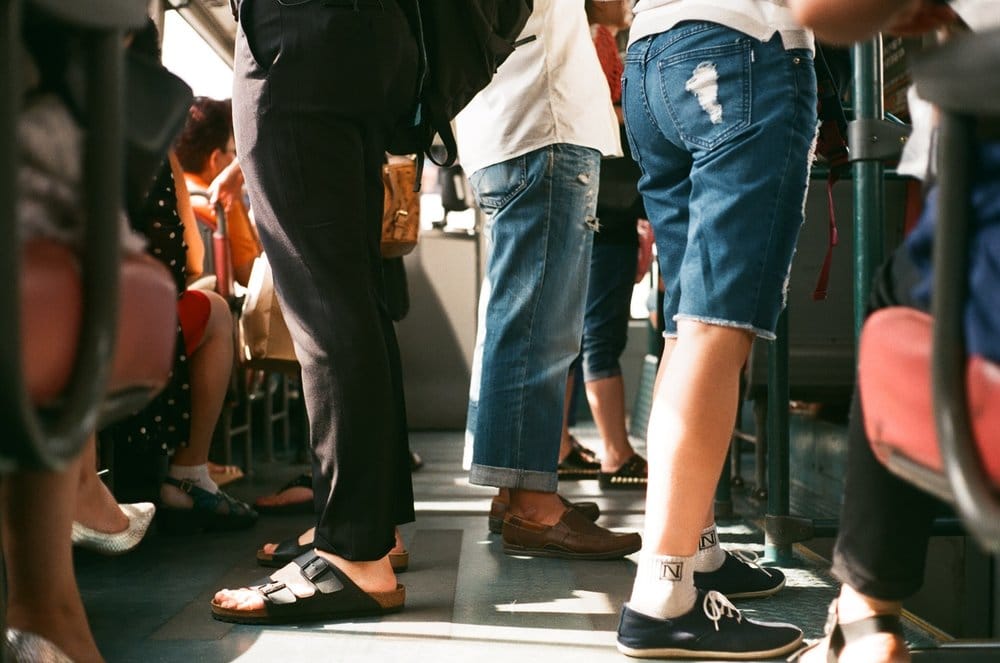For many UK workers, the daily commute has become an increasing burden. According to the Trade Union Congress (TUC), commuting time has surged by a staggering 18 hours over the past decade.
This revelation might make you ponder if all those hours stuck in traffic or squeezed into a train are truly worth it.

A study by Totaljobs further underscores this plight, revealing that the average worker is set to spend a jaw-dropping £135,000 on commuting by the time they retire.
In response to these findings, Instant Offices delved into the global commuting landscape to identify the best and worst cities for commuters and to evaluate if the rise of flexible and remote working could finally offer UK workers some relief.
London, as per the Department for Transport, leads the pack with the longest average commute time.
Workers in the capital spend an average of 46 minutes per trip, amounting to a gruelling 92 minutes daily.
That’s about 400 days spent commuting over a lifetime! No wonder there’s a growing chorus demanding ways to cut down on this excessive travel time.
A study by Focus, considering various factors such as journey times and travel costs, ranks London as the worst city for commuting, with Miami in the USA trailing closely behind.
Worst Cities for Commuting
- London, UK
- Miami, USA
- Cali, Colombia
- Brasilia, Brazil
- Toronto, Canada
Best Cities for Commuting
- Nice, France
- Cuenca, Ecuador
- Bilbao, Spain
- Toulouse, France
- Catania, Italy
Nice, France, takes the crown for the best commuting experience. Travel cards there cost significantly less than in London, and the average travel time is just 22 minutes per trip, totalling a mere 44 minutes daily compared to London’s over 80 minutes.
Within the UK, Leicester, Bristol, and Edinburgh boast the easiest commutes, while London, Birmingham, and Manchester rank at the bottom.
Extensive research highlights the adverse effects of long commutes on both physical and mental health. A report by the Royal Society for Public Health found:
- Over half of commuters say travel increases stress levels.
- Two in five say it decreases their physical activity.
- More than a third report getting less sleep.
Beyond the toll on mental well-being, prolonged commutes can diminish employee happiness and overall health due to reduced physical activity.
Additionally, productivity suffers. Giving back even two hours a day to an employee could potentially return ten hours of productivity each week, equating to 40 hours a month.
Lucinda Pullinger, Global Head of HR at The Instant Group, comments, “To cut down on stress as well as commuting times and costs, more companies in the UK are introducing flexible and remote working options for employees.
An increase in co-working and flexible office space, access to new technology, and faster internet speeds have also changed the way we work. By 2020, a predicted report by HSO shows 50% of the UK workforce will be working remotely.”
While some companies worry about the impact of remote working on productivity, research by YouGov paints a different picture. 20% of HR managers believe their staff work to a slightly higher standard at home, with 7% noting a much higher standard.
Testing Remote Working in the Workplace
Here are four strategies to introduce remote working successfully:
- Ensure Top Performance: Companies are more likely to consider remote working for top performers who communicate well and can meet deadlines from another location.
- Provide Clear Reasons: Justify your choice with clear reasons, such as reducing commuting costs, increasing productivity, gaining more quiet time, or moving from one area to another.
- Research Your Options: Plan meticulously to ensure you can work remotely. This includes having the necessary tools, fast internet, and access to technology when needed. Explore various flexible office space options and evaluate the costs and amenities.
- Test Remote Working: Many companies prefer to start with remote working one day a week as a test. This trial run helps ensure productivity and work quality meet expectations.
In summary, the true cost of getting to work extends beyond mere financial expenses, impacting physical health, mental well-being, and productivity.
Embracing flexible and remote working options could be the key to alleviating the pains of commuting, making the journey to work more bearable for everyone.
https://www.instantoffices.com/blog/featured/cost-of-your-commute
